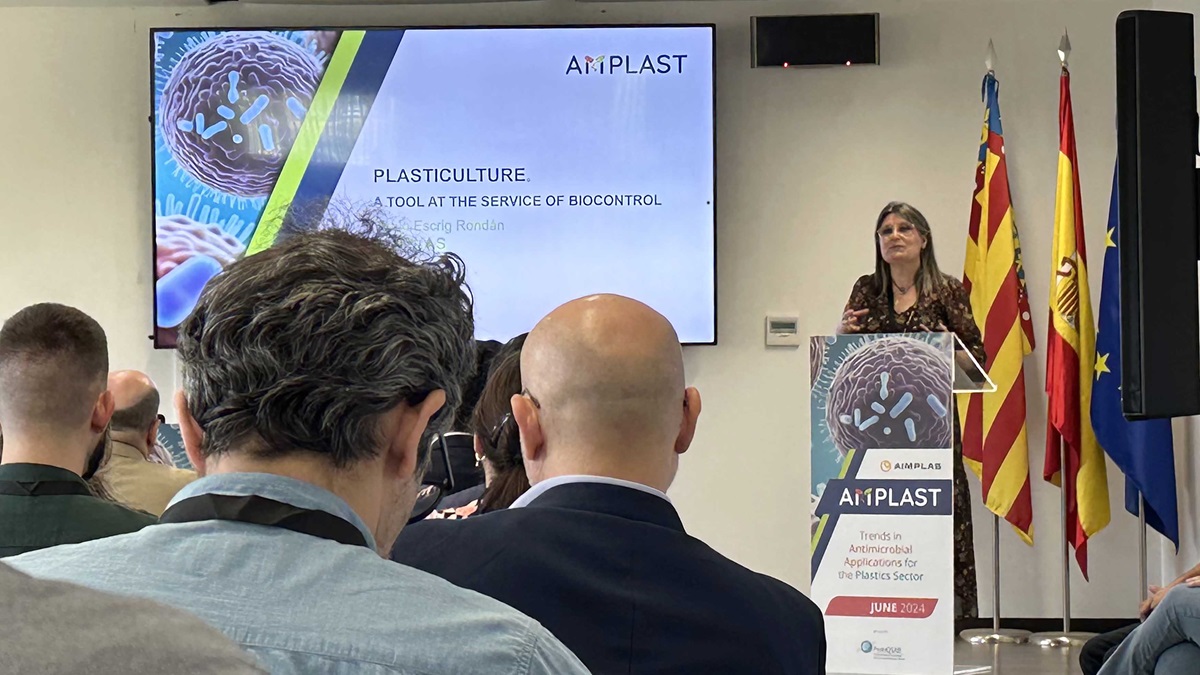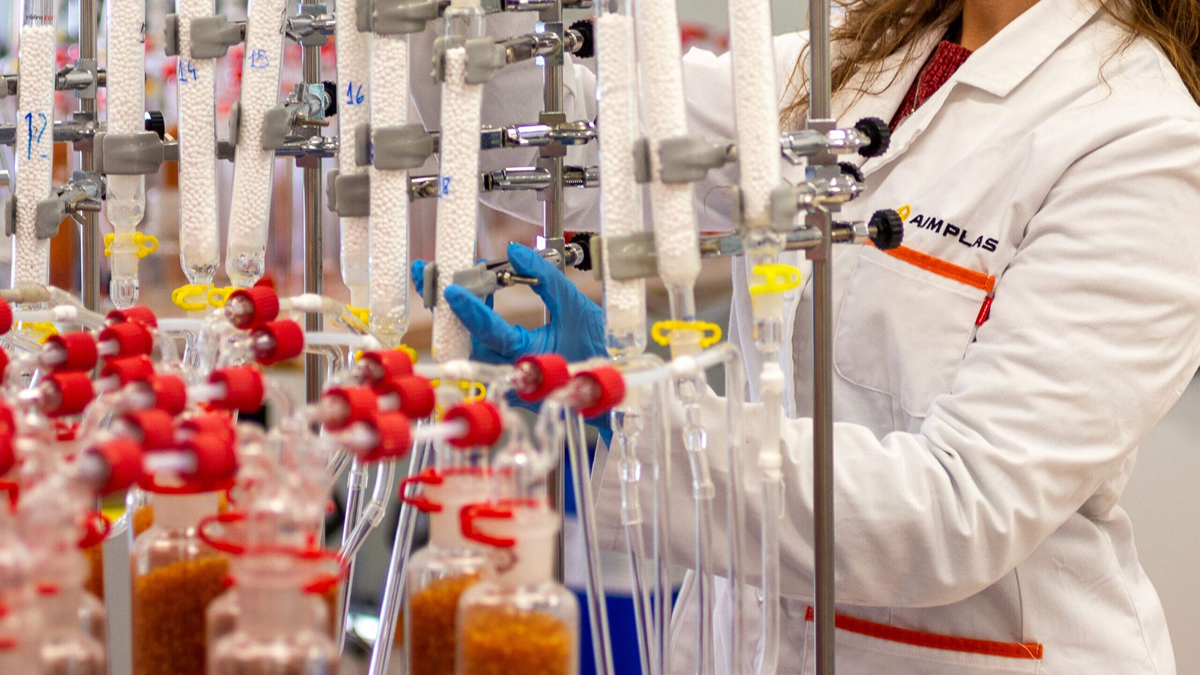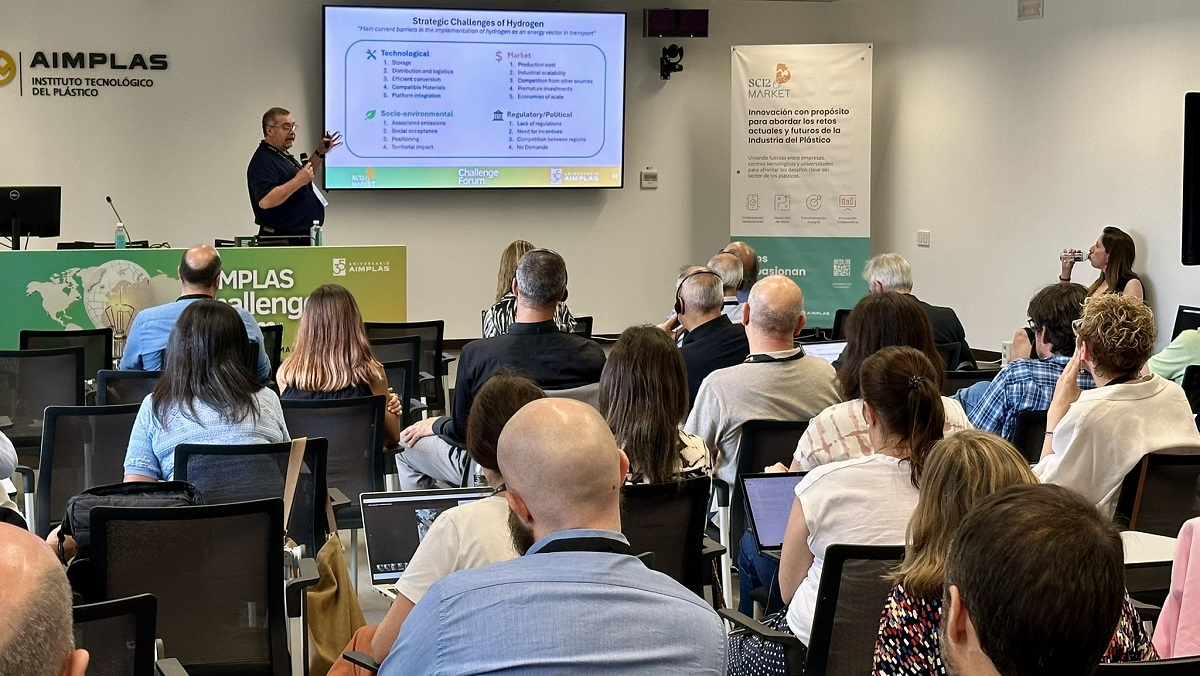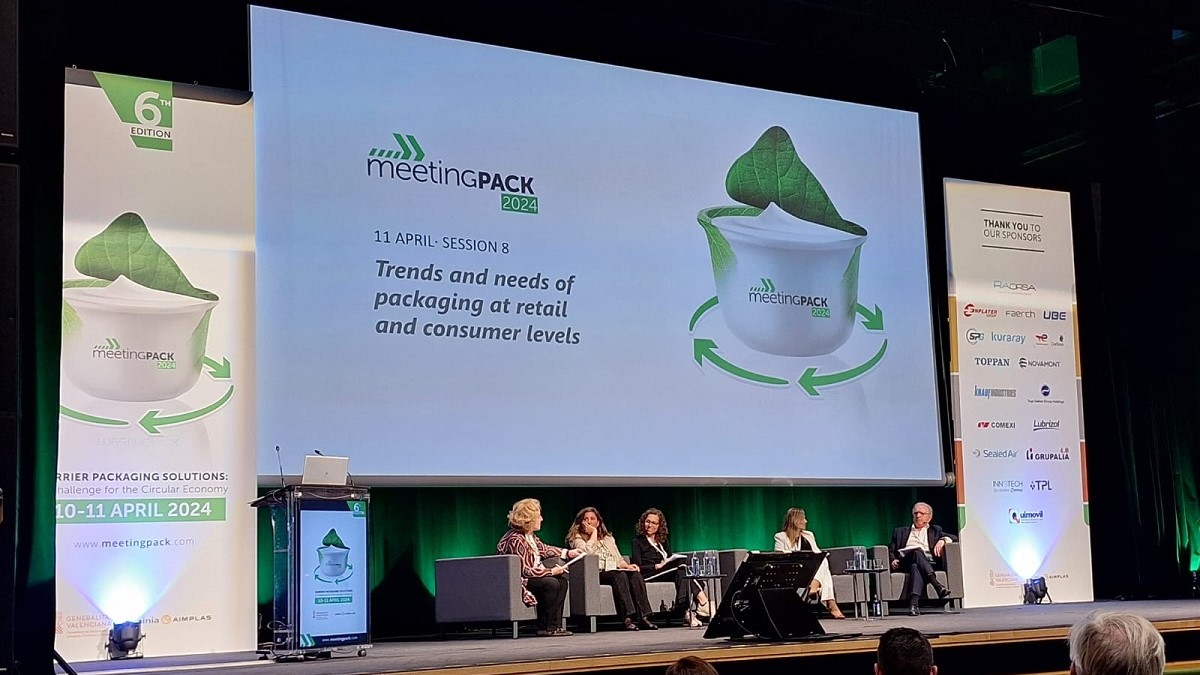Actualidad
AIMPLAS Introduces Novel Biocontrol Strategies for Bacteria in the Agri-Food Sector
The first edition of the international seminar AMPLAST showcased applications in plasticulture, such as using avocado by-products to create antibacterial films. The seminar also highlighted treatments using viruses (phages) to target bacteria

Redaccion
Reducing the use of chemically derived pesticides in combating bacteria and pests is among the major challenges in the agri-food sector. Biocontrol emerges as a sustainable alternative for plant disease management, ensuring soil and water health without harming other organisms. It is noted for its durability and long-term effectiveness.
In this context, AIMPLAS, the Technological Institute of Plastics, recently presented various innovative solutions at an international meeting, utilizing substances of botanical (natural extracts) and microbial origin (biological control agents) for crop protection. These solutions aim to control fungal and bacterial diseases.
Specifically, the first day of the AMPLAST seminar analyzed leading trends in developing antimicrobial applications for the agricultural sector, emphasizing how plastics can enhance efficiency in biocontrol treatments.
A highlighted method includes applying these solutions in plasticulture products, turning them into tools for biocontrol. Chelo Escrig, leading researcher in Agriculture and Aquatic Environment at AIMPLAS, highlighted the use of avocado in creating plastic films with antibacterial properties, as well as the development of "Solid Water" for plant irrigation.
Use of phages in the agri-food sector
One of the new biocontrol strategies presented involves the use of bacteriophages (viruses that infect bacteria). According to Maria Luisa Domingo Calap, CEO of Evolving Therapeutics S.L., this is a "safe process that eliminates bacteria without generating negative effects or changes in other organisms." This technique has also been applied in healthcare to combat the 20,000 deaths annually in Spain due to resistant bacteria.
Additionally, Antonio Vicent, unit head at IVIA, explained how a system can control citrus bacteria (bacteriosis), potentially halving the challenges faced in citrus cultivation, particularly in reducing pest-related issues.
Lastly, Belén Franch from the University of Valencia described a satellite-based remote sensing project aimed at enhancing agricultural productivity and detecting crop problems, including pest control.
The first edition of AMPLAST also included a second day dedicated to biocides in plastic applications for health. New active plastic materials were presented for disease prevention, with mechanochemistry identified as an ideal technology for implementation, reducing steps, resource consumption, and waste generation.
About AIMPLAS
At AIMPLAS, the Technological Institute of Plastics, we have a dual purpose: to add value to companies for wealth creation and quality employment, and to address social challenges to improve quality of life and ensure environmental sustainability.
We are a non-profit entity belonging to the Network of Technological Institutes of the Valencian Community (REDIT), offering comprehensive and personalized solutions to the plastics sector. Our services range from R&D projects to training, competitive and strategic intelligence services, technological analyses and tests, and technical consultancy.
Furthermore, we support the 17 Sustainable Development Goals (SDGs) of the United Nations Global Compact through our activities and social responsibility efforts.












